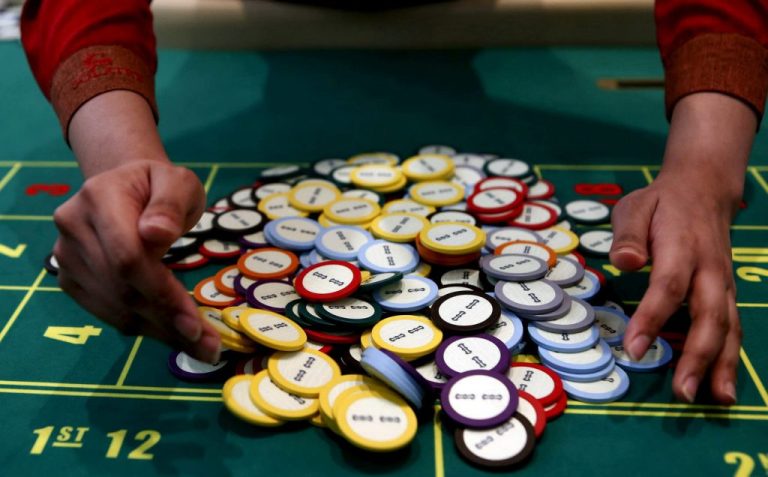
Gambling has a complicated and controversial history in Pakistan, where it is largely prohibited due to the country’s adherence to Islamic law. Despite this, gambling activities continue to persist in various forms, both legally and illegally. This article explores gambling statistics in Pakistan, providing insight into the popularity of gambling, the forms it takes, and the impact it has on society and the economy.
The Legal Status of Gambling in Pakistan
In Pakistan, gambling is illegal under the Hudood Ordinance of 1979, which was implemented in accordance with Islamic law. The ordinance bans most forms of gambling, including card games, betting, and lottery. However, certain exceptions exist, such as government-run lotteries and horse racing in some regions. In recent years, the rise of online gambling, including sports betting and casino games, has added complexity to the situation, with many Pakistanis accessing international platforms despite the legal restrictions.
Popular Gambling Forms in Pakistan
Despite the legal prohibitions, various forms of gambling are popular in Pakistan. These include both traditional forms and those that have emerged with the growth of the internet.
1. Illegal Betting and Gambling
Illegal gambling is widespread in Pakistan, especially in major cities like Karachi, Lahore, and Islamabad. The underground gambling scene typically includes card games, betting on sports, and informal lotteries. Cricket betting is particularly prevalent, as the sport is deeply ingrained in Pakistani culture. Illegal poker games, both offline and online, are also common, though difficult to track due to their unregulated nature.
2. Horse Racing
Horse racing is one of the few forms of legalized gambling in Pakistan. It is allowed in certain provinces, such as Karachi, where the Karachi Race Club holds regular races. However, this form of gambling remains relatively niche compared to other illegal activities and is largely confined to enthusiasts and those with disposable income.
3. Online Gambling
The popularity of online gambling in Pakistan has surged in recent years, despite its illegal status. Websites offering poker, sports betting, and casino games attract a large number of Pakistani players. Many individuals use virtual private networks (VPNs) to bypass restrictions and access international gambling platforms. Online gambling statistics are difficult to track accurately, as most of these activities occur on offshore sites and go unreported.
4. Lottery
The government of Pakistan runs a few official lotteries, such as the Pakistan National Lottery and various regional lotteries. However, lotteries in Pakistan are less popular than in other countries, and the scope of these games is limited to a small section of the population. The government also occasionally organizes prize bonds as a form of lottery, though they have little impact on the overall gambling economy.
Economic Impact of Gambling in Pakistan
Gambling activities, both legal and illegal, have a noticeable economic impact in Pakistan. While official gambling contributes a small amount to the economy, the illegal gambling market remains significant but difficult to measure.
1. Revenue Generation
If properly regulated, gambling could be a substantial source of revenue for the Pakistani government. Legalizing certain forms of gambling, such as online casinos or sports betting, could generate tax revenue and create jobs in the hospitality and entertainment sectors. However, due to the current legal framework, Pakistan misses out on this potential income.
2. Underground Economy
The underground gambling economy, driven by illegal activities like sports betting, underground casinos, and online gambling, is estimated to be worth billions of rupees. However, the true extent of this underground market is difficult to measure because of its clandestine nature. Many players turn to illegal operators and offshore sites to bypass the country’s legal restrictions, leading to lost tax revenue for the government.
3. Impact on Local Communities
Illegal gambling activities can have a negative impact on local communities in Pakistan. These activities are often linked to organized crime, money laundering, and other criminal enterprises. Additionally, they may contribute to gambling addiction, which can lead to financial ruin and social problems for families and individuals.
Demographics of Gambling in Pakistan
While reliable gambling statistics in Pakistan are hard to come by, several trends and observations provide a clearer picture of who participates in gambling activities.
1. Age Group
Gambling activities are most commonly participated in by young adults and middle-aged individuals, especially between the ages of 18 and 40. The proliferation of online gambling has made it easier for younger people, particularly those with access to smartphones, to engage in gambling. Mobile apps and online platforms cater to this demographic, offering a variety of games and betting opportunities.
2. Income Level
Gambling is more popular among people with disposable income, as it requires financial risk and investment. The upper-middle class and wealthy individuals are more likely to engage in both legal and illegal gambling activities. The underground gambling market, however, also attracts lower-income individuals, who may gamble as a means of quick financial gain.
3. Gender Distribution
Gambling in Pakistan is predominantly a male activity. Cultural and social norms, which view women’s participation in gambling as inappropriate, limit their involvement. However, there are indications that women, particularly from more liberal urban areas, are gradually beginning to participate in online gambling platforms, though they remain a small minority compared to men.
The Future of Gambling in Pakistan
The future of gambling in Pakistan remains uncertain. While gambling is prohibited by law, the growing popularity of online gambling and the potential tax revenue from legalizing certain gambling activities may prompt a reassessment of the current legal stance. Some policymakers and economists argue that regulating online casinos, sports betting, and other gambling forms could lead to increased revenue and job creation, while reducing the risks associated with illegal gambling.
However, any shift in policy would require significant social and cultural shifts, as well as a commitment to responsible gambling practices and regulatory enforcement. Public opinion, shaped by religious values and the government’s conservative stance, will play a significant role in determining whether gambling laws will be reformed.
Conclusion
Gambling in Pakistan remains a controversial topic, with a mix of legal restrictions and thriving underground markets. While the full scale of gambling activities is difficult to measure, illegal betting, online gambling, and horse racing are the most common forms of gambling in the country. Despite its outlaw status, the gambling industry in Pakistan could offer substantial economic benefits if properly regulated. The future of gambling in Pakistan will largely depend on the government’s willingness to adapt its policies in response to changing social and technological dynamics.



